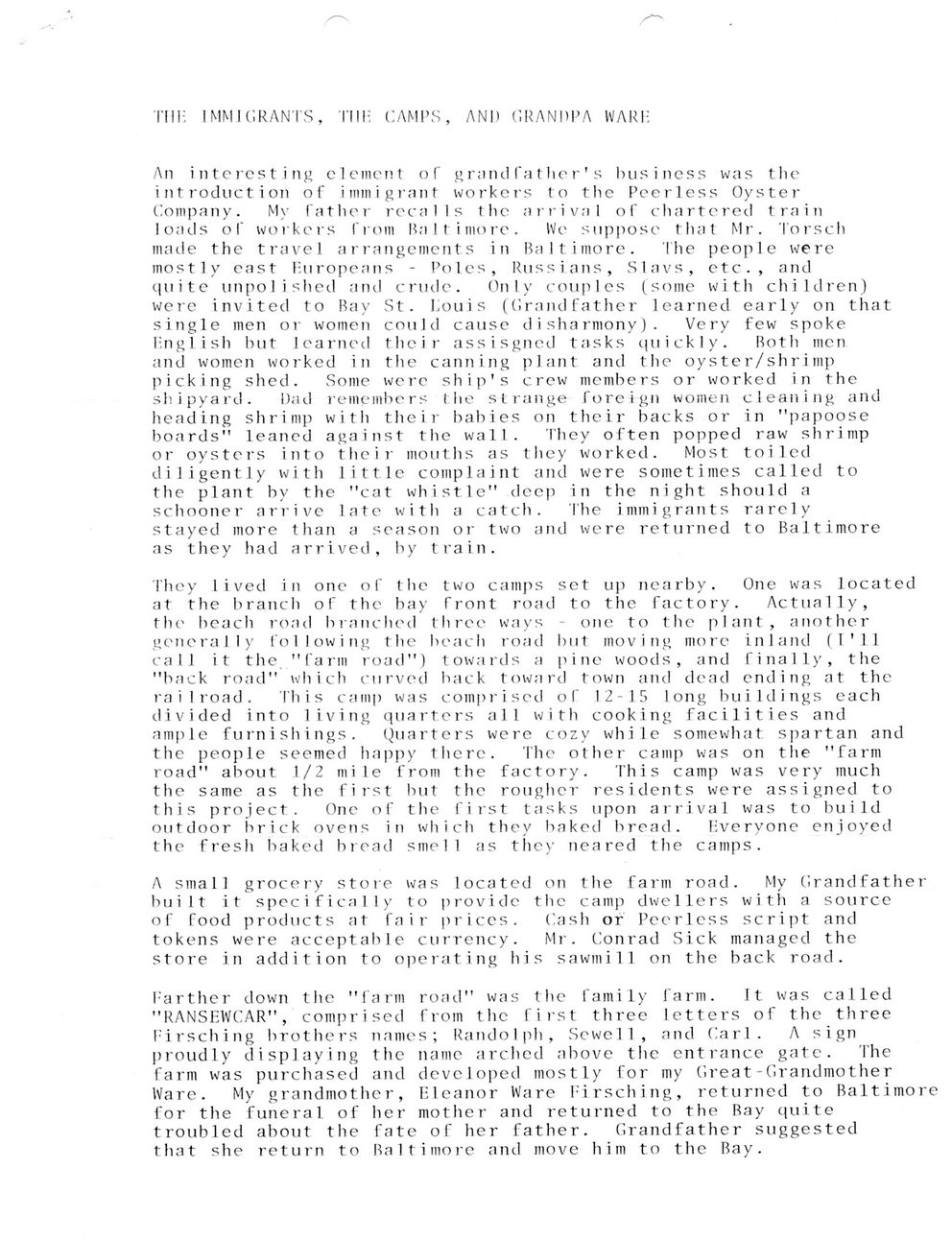This text was obtained via automated optical character recognition.
It has not been edited and may therefore contain several errors.
Till- IMMIGRANTS, Till! CAMPS, AND GRAND I?A WAR!! An interesting element of g r;md fa t he r 1 s business was the introduction of immigrant workers to the Peerless Oyster Company. My lather recalls the arrival of chartered train loads of workers from Baltimore. We suppose that Mr. Torsch made the travel arrangements in Baltimore. The people were mostly cast Europeans - Poles, Russians, Slavs, etc., and quite unpolished and crude. Only couples (some with children) were invited to Bay St. Louis (Grandfather learned early on that single men or women could cause disharmony). Very few spoke Fnglish but learned their assisgned tasks quickly. Both men and women worked in the canning plant and the oyster/shrimp picking shed. Some were ship's crew members or worked in the shipyard. Dad remembers I he strange foreign women cleaning and heading shrimp with their babies on their backs or in "papoose boards" leaned against the wall. They often popped raw shrimp or oysters into their mouths as they worked. Most toiled diligently with little complaint and were sometimes called to the plant by the "cat whistle" deep in the night should a schooner arrive late with a catch. The immigrants rarely stayed more than a season or two and were returned to Baltimore as they had arrived, by train. They lived in one of the two camps set up nearby. One was located at the branch of the hay front road to the factory. Actually, the beach road branched three ways one to the plant, another uenerally following the beach road but moving more inland (I'll call it the "farm road") towards a pine woods, and finally, the "back road" which curved back toward town and dead ending at the railroad. This camp was comprised of 12-15 long buildings each divided into living quarters all with cooking facilities and ample furnishings. Quarters were cozy while somewhat spartan and the people seemed happy there. The other camp was on the "farm road" about 1/2 mile from the factory. This camp was very much the same as the first but the rougher residents were assigned to this project. One of the first tasks upon arrival was to build outdoor brick ovens in which they baked bread. liveryone enjoyed the fresh baked bread smell as they neared the camps. A small grocery store was located on the farm road. My Grandfather-built it specifically to provide the camp dwellers with a source of food products at fair prices. Cash or Peerless script and tokens were acceptable currency. Mr. Conrad Sick managed the store in addition to operating his sawmill on the back road. farther down the "farm road" was the family farm. It was called "RANSEWCAR", comprised from the first three letters of the three Firsching brothers names; Randolph, Sewell, and Carl. A sign proudly displaying the name arched above the entrance gate. The farm was purchased and developed mostly for my Great-Grandmother Ware. My grandmother, Eleanor Ware Firsching, returned to Baltimore for the funeral of her mother and returned to the Bay quite troubled about the fate of her father. Grandfather suggested that she return to Baltimore and move him to the Bay.

Firsching 042